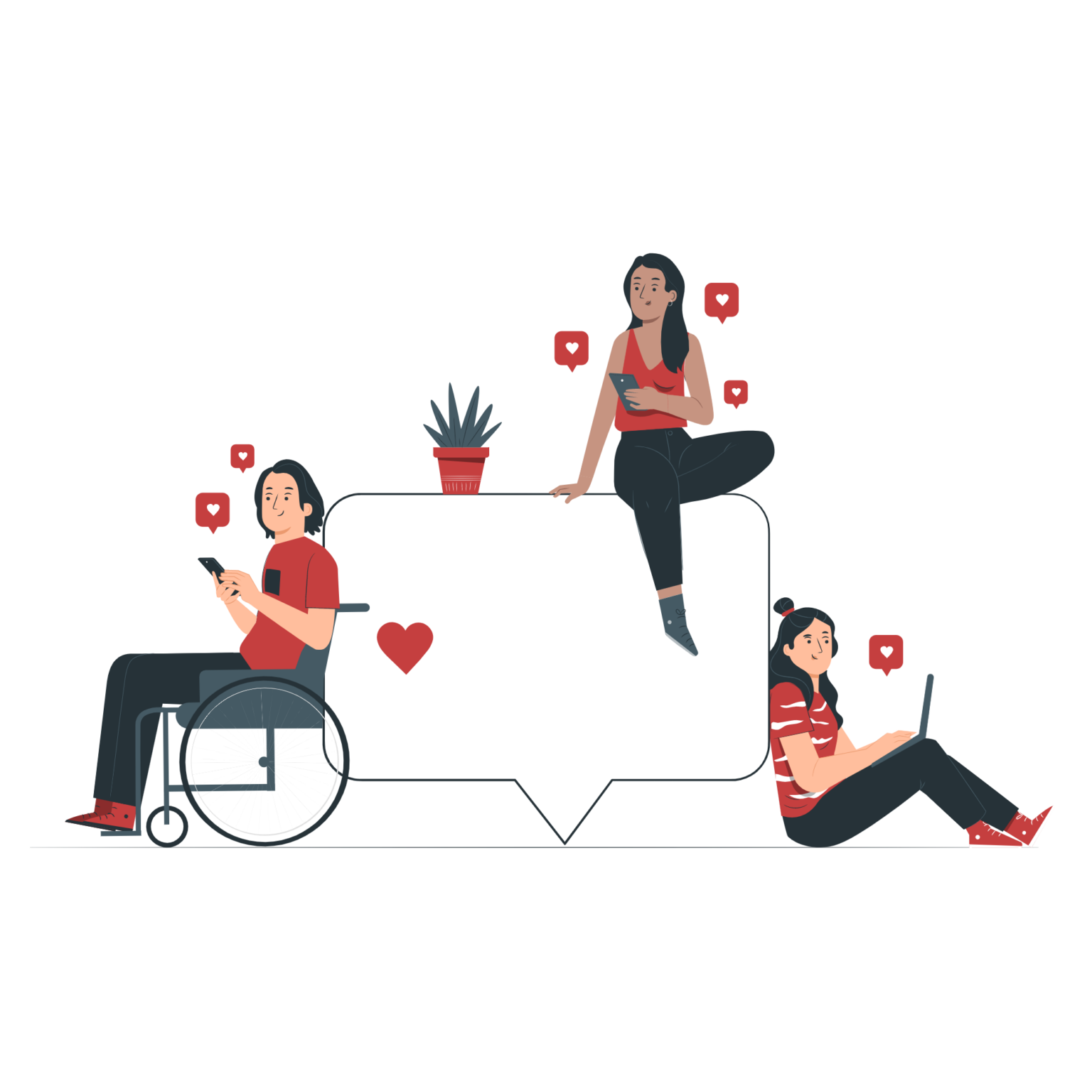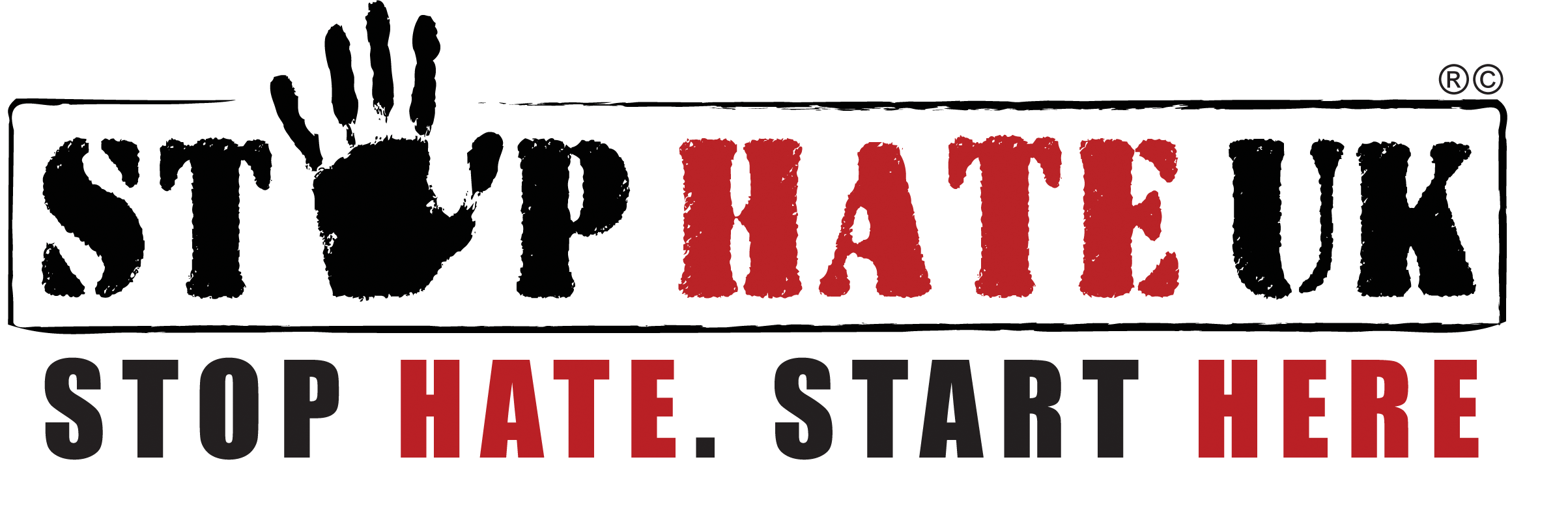Online Hate Crime
We Support People Affected by Online Hate
At Stop Hate UK, we encourage and support people to report online Hate incidents and crime to our helplines just as we encourage reports of offline Hate incidents and crimes. Other than where and how it occurs, online Hate is no different than offline Hate, and we can provide the same level of support and outreach to you if you experience online Hate.
What is Online Hate Crime?
Online Hate is posting and sharing hateful and prejudiced content against an individual, group or community. It can take the form of derogatory, demonising and dehumanising statements, threats, identity-based insults, pejorative terms and slurs.
If a post is hostile towards a person’s race, religion, disability, sexual orientation or gender identity, it could be viewed as Hate Speech. If it is serious enough, it may break the law, whether it is online or offline.
Online Hate can be expressed through many types of media, including text, images, videos and audio. These different types of media content are sometimes combined.
Online Hate can include Malicious Communications (sending letters, emails and messages that cause distress and anxiety), Cyberbullying, Cyberstalking, Harassment, Stirring up Hatred through Content (text, image, video, audio), Incitement to Commit Violence.
What is the difference between online Hate and offline Hate?
Although Hate manifests online in similar expressions found offline, there are key differences between online and offline Hate in terms of their nature and prevalence.
- Online content once posted remains hosted on the Internet indefinitely. This means online Hate is usually permanent
- Online Hate can spread and ‘travel’ across the web to a large audience and quickly
- People who create online Hate content are usually anonymous
Evidence indicates that the sharing of hateful attitudes online can motivate people to commit harmful acts in the real world, such as physical assault, verbal abuse, damage to property. Hateful content can even lead to tragedies such as shootings or bombings.

How Common is Online Hate?
Assessing the prevalence of Online Hate is a difficult task due to the lack of appropriate data and robust measurement tools.
In the most recent Hate Crime statistics from the Home Office, statistics on Online Hate Crime were not made available due to lack of logging system for Online Hate incidents or crime.
Statistics on Online Hate Crimes were last given in 2017/2018, when “experimental” figures were given for 30 out of 44 police forces. They showed that 1,605 online hate crimes were recorded in England and Wales, around 2% of all hate crimes.
In November 2020, Facebook reported for the first time that the percentage of content exposure for hate speech was 0.11%. This means that for every 1,000 times a piece of content is viewed on the platform, one of them will be hateful content.
While we do not have recent and robust data on the prevalence of Online Hate, the issue of Hate Speech and how it trickles into our real world is a constant global discussion, especially on the backs of recent tragedies such as the 2019 Christchurch Mosque shootings in New Zealand and the 2021 Spa shooting in Atlanta, USA, the Plymouth Shooting in August 2021 and many other incidents where perpetrators had a history of spreading hate online against the personal identities of the groups that they attacked in real life.

How Stop Hate UK Tackles Online Hate
The anonymity of the Internet bolsters people to post harmful information more frequently compared to spreading Hate in the real world. The speed and convenience at which hatred is spread online is also a factor in how easy it is for someone to be bolder online.
Hence, facing hate online on your phone, on your personal social accounts constantly can be an incredibly lonely and difficult experience.
Stop Hate UK’s 24hr Helpline service provides a safe space for callers to tell us about their experiences and help explain the options available and provide free, independent advice. Nothing is ever too small to report to our team. We acknowledge that it can be a build up of incidents that lead to Hate Crime, and that’s why we are always on hand to listen and provide ongoing support when making a report.
Stories from callers
Our caller was the mum of a transgender boy who was targeted by transphobic hate via comments on his social media account after posting a picture of himself with his girlfriend. Both her son and his girlfriend were targeted.
Stop Hate UK helped the mother and her son by logging details of the incident, providing specialist advice on how to report online hate, how to gather evidence when its online, including how to take screenshots, as well as report it separately to the social media provider.
The caller felt they had been listened to and received useful information so they could report and block the account to stop receiving hate from the individual.
Offensive material was posted on a Facebook group made for Pride events. The suspect had posted a homophobic comment. The victim responded, to which the suspect again posted with more homophobic and ignorant comments.
We provided emotional support to caller in the face of offensive language and abuse. We also provided with strategies on how to record online abuse (screenshotting) for evidence, options to reporting to online platforms or to the Police.

Our Work fighting against and improving understanding of Online Hate
Stop Hate UK recognises the impact that Online Hate can have on individuals and communities. We work to reduce it and create a better online environment by increasing understanding of how and why it is important to know the harmful effects created by the powerful world of the Internet.
We have developed high-impact training services for companies, educators, and community groups on Online Hate, how to challenge it, and how to prevent it. Some of our programmes include: ‘Social Media and Online Hate’ and ‘Media Bias and Fake News’
We also provide educational resources on our website such as PDFs, case studies, and worksheets to help people especially young people better understand what Online Hate is, its effects and what can be done about it at the individual level.
We recently produced a video campaign to tackle Online Hate that can be shared in schools, workplaces, and community groups on the effects that Online Hate can have on a person.

Why Support Us
Online Hate is increasingly prevalent and it influences hate offline. Our online services team works to monitor, track and counteract hate speech online. With your support we can continue to work closely with social media providers to get harmful content removed and help those affected. Please consider donating to support someone affected by Online Hate.

